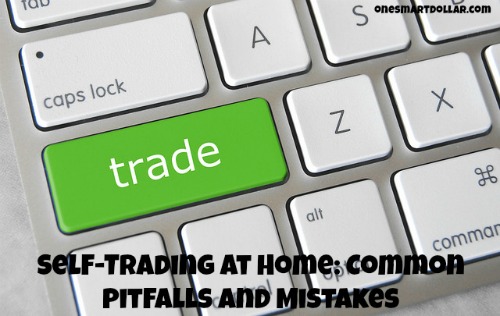
Let us imagine for a moment that you had recently decided to take the leap into the Forex marketplace. While you may have had all of the confidence in the world and a theoretical knowledge of the industry, your funds have quickly depleted and you now find yourself with little liquidity for future trades. What went wrong? This is a very common situation and in order to dive into the reasons for such a disappointment, it is important to take a look at some of the most common (and costly) mistakes which first-time traders make.
Not Enough Preparation
Much like any new venture, it is important to appreciate the intricacies of the Forex markets. Many newcomers are overly eager to begin and as a result, they are completely unprepared for what may be in store. Without a strong foundation, even the loftiest of castles is bound to tumble to the ground. This principle is just as true with investing. Study Fibonacci lines, charts, market fundamentals and technical analyses. Begin to understand the impact that other sectors have upon currency pairs. These are only a handful of topics that need to be addressed. It is far better to spend months studying Forex strategies as opposed to taking foolish risks.
A Failure to Listen to Others
The most successful traders are always open to the suggestions of others. Even those who have become millionaires will heed the advice of experts. Take some time and examine the strategies of the best in the business. Pride has a certain amount of influence here. Many could feel that they are impervious to failure after the execution of a few well-placed (and perhaps lucky) trades. This is certainly not the case. Humility goes a long way within the financial industry. Home trading should never be an isolated experience. Make powerful contacts and ask their opinions on a certain topic whenever it is relevant.
The Wrong Trading Platform
Home-based trading is massively impacted by the trading platform that is chosen. Some may choose generic architecture such as MetaTrader 4 while others prefer the unique sense of intuitive flexibility that is provided by cutting-edge firms such as CMC Markets. Should the incorrect platform be chosen, it is likely that lucrative positions will fall by the wayside and losses can quickly incur. Study each system with an eye for detail and keep in mind features such as usability, flexibility, customization, customer support and the amount of underlying assets to be traded.
Overexposure
Due to the sheer liquidity of the Forex markets, it is a good idea to limit one’s exposure to a specific position (such as a currency pair). Instead, home-based traders should strive to diversify their portfolio. This can be thought of as the ballast of a ship. Should all of the ballast be found in one location, it is likely that the vessel will tip when the seas become rough. Diversification is key to success.
Emotion
Home-based traders will often fall victim to their emotions; particularly because there are no other colleagues to provide them with a more objective perspective. This can be the death of any otherwise lucrative position. Greed and fear should be kept in check at all times; regardless of the perceived state of the markets. Execute trades with objectivity and pragmatism. If this seems difficult, it is wise to consult with established contacts (as mentioned above).
Home-based trading is an excellent way to become self-sufficient in this day and age. Avoiding these common pitfalls will help to make sure that any trader is prepared for what is in store.
Image Source
